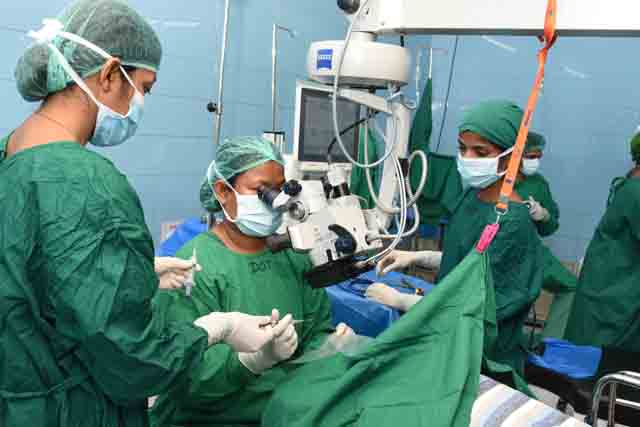Key community eye health messages

Related content
Points to keep in mind while conducting surgical skill training
• Ensure that trainees prioritise patient safety above all else and understand the importance of minimising risks to patients during surgery.
• Provide trainees ample opportunities for hands-on training using surgical simulators or cadaver eyes before they perform surgery on live patients.
• Implement a structured training programme with a system of continuous assessment and feedback to track trainees’ progress and address areas needing improvement.
• Emphasise the importance of evidence-based practices and the need to stay abreast of the latest research and advancements.
Roles and responsibilities of an ophthalmic nurse in eye surgery
• Conduct a pre-operative assessment to evaluate the patient’s eye condition, medical history, and overall health to ensure their suitability for surgery.
• Confirm the patient’s identity, mark the correct eye for surgery, and obtain informed consent.
• Assist the ophthalmic surgeon by handling instruments, maintaining a clear view of the surgical field, and providing support as needed.
• Prepare for post-operative care and monitor patients as they wake up from anaesthesia.
Important considerations while performing procedures
• Perform surgical procedures with precision, dexterity, and a deep understanding of ocular anatomy and pathology to achieve successful surgical outcomes.
• Handle delicate eye tissues with extreme care and minimise trauma to surrounding structures to ensure the best possible surgical outcome.
• Maintain clear and effective communication with the surgical team, including nurses, anaesthesia providers, and operating room staff, to ensure coordination and safety throughout the procedure.
